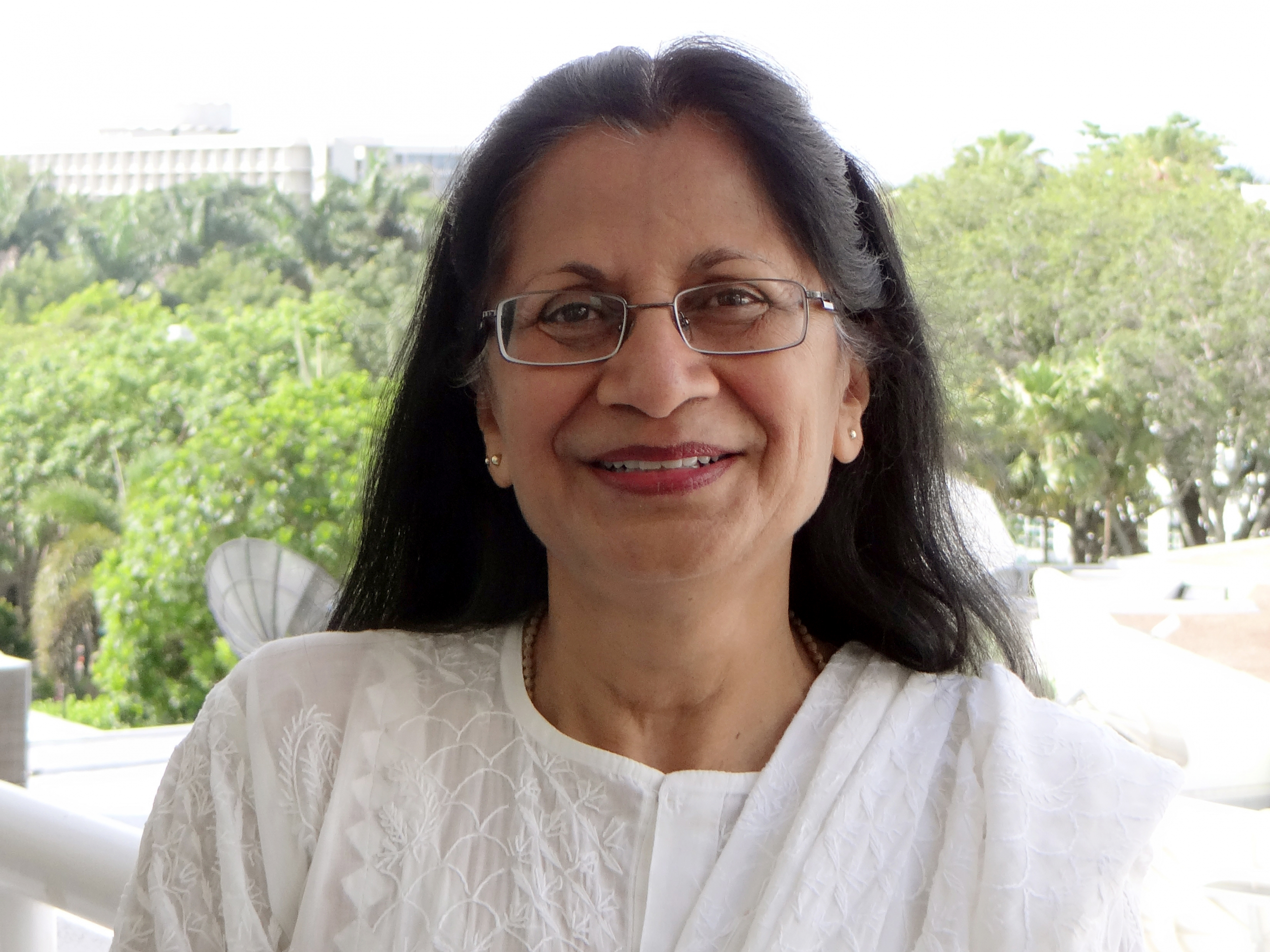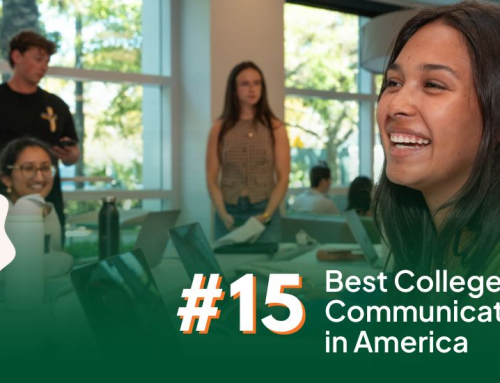By Emily R. Mirengoff,
M.A. Communication Studies Student
For Dr. Jyotika Ramaprasad, the Vice Dean for Graduate Studies and Research and the Interim Director of the Center for Communication, Culture and Change, education is not about memorizing lines out of a textbook or simply accumulating degrees for a resume. It is about broadening students’ horizons, including their worldviews—helping them to learn about countries and cultures that are different from their own, and using that knowledge, as responsible citizens of the world, to give back to society.
Dr. Ramaprasad learned these lessons herself at a young age. Born and educated in India, she has pursued her passion for communication for social change for nearly thirty years. She earned her Ph.D. in Journalism from Southern Illinois University, and she explains, “My interest in journalism studies comes not so much from an interest in journalism per se, but what journalism can do to make society better—to make people’s lives better.”
Her wish to help enhance the quality of peoples’ lives has taken her to numerous countries, including Bangladesh, Botswana, Egypt, Nepal, Pakistan, Tanzania, and back to her native India, where she has conducted qualitative, in-depth interviews with journalists throughout those countries. Part of a world-wide project called “Worlds of Journalism,” which aims to assess the state of journalism throughout the world, Dr. Ramaprasad and her colleagues are developing profiles of these journalists to examine the differences that exist across different journalism cultures.
Her research has also sent her to such countries as Uganda and Vietnam, where she has shared with non-governmental organizations (NGOs), or non-profits, ways in which to use communication to support their public health initiatives. One such project was designed to assist couples who were living with HIV in Uganda. Dr. Ramaprasad conducted extensive interviews throughout the community and learned that discordant couples (in which one member of the relationship is HIV-positive and the other is not) faced significant difficulties—often, the HIV-positive person was afraid to disclose their status to their partner, which could create dysfunctional relationships and poorer health outcomes for their children. The research indicated that discordant couples in this community would benefit greatly from couple testing, in which a trained counselor would provide a safe space for them to receive their test results and help them assess their health and treatment options.
In order to make the community aware of this valuable couple testing service and encourage them to take advantage of it, Dr. Ramaprasad created an educational video designed to appeal specifically to the members of this community. Relying on the knowledge of locals, Dr. Ramaprasad’s video featured only members of the community—not external medical or communications experts—and was tailored to match their cultural values and habits. She tested the video to determine whether it would be effective in changing people’s behaviors, editing it several times before it was released to the community.
The key to succeeding in these types of social and behavior change communication projects, according to Dr. Ramaprasad, is to make sure that they are very local and participatory, and that they are crafted with a strong understanding of the culture, taking into account everything from their language to the colors that they favor. “I very strongly believe that we are not experts,” Dr. Ramaprasad says of her own role in the project. “We are just catalysts, and it’s the communities which have the local knowledge and the ability to make change.”
Ideally, she would love to someday embark on an interdisciplinary social change project that would combine the knowledge of physicians and scientists, environmental experts, communication researchers and others to tackle a major community-wide problem in another country. Such a project would not only benefit that community, but also the UM student collaborators, who would gain international experience and develop a sense of civic professionalism.
Of her work, Dr. Ramaprasad says: “You have to realize that you’re not going to change the world—you’re probably not going to change the life of ten people. But if you change the life of even one person, it’s worth it.”
This story was originally produced for the office of University Advancement.







